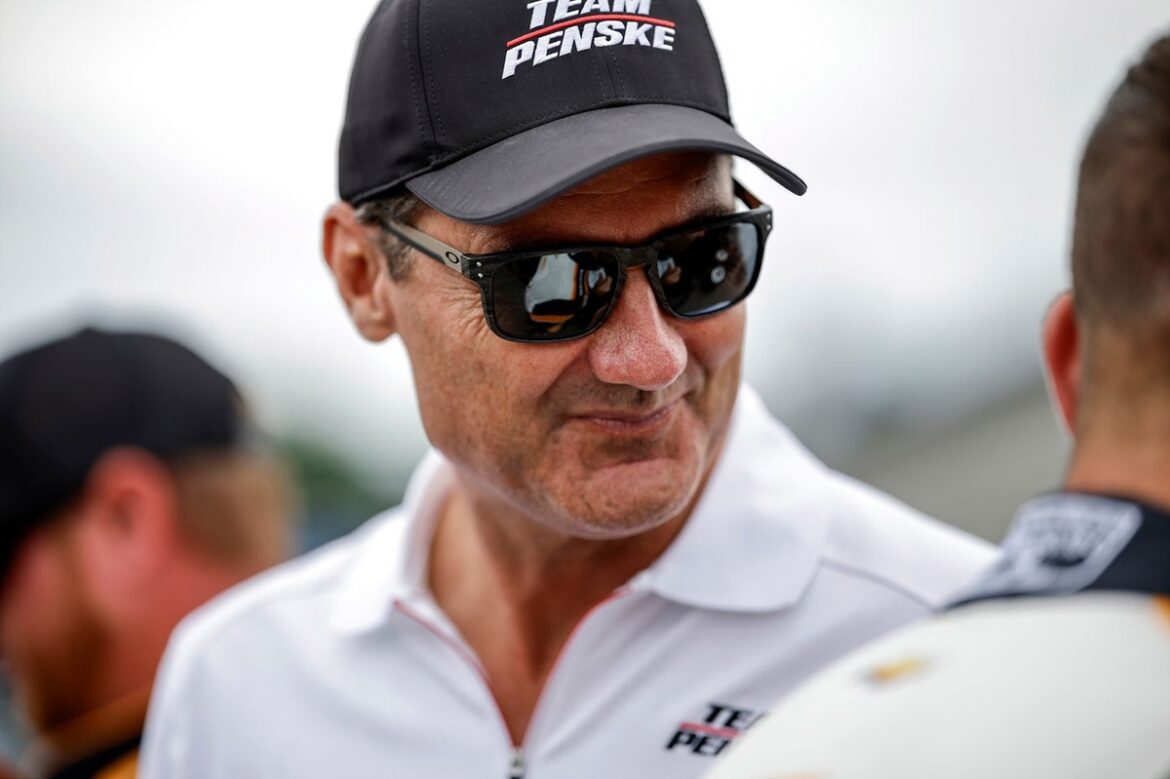The recent controversy surrounding Team Penske’s Indy 500 qualifying procedures has sent shockwaves throughout the motorsport community. In the days following the incident, significant repercussions have emerged for the team and its personnel. The fallout has led to the demotion of drivers Josef Newgarden and Will Power to the back of the starting grid, a hefty financial penalty totaling $200,000, and the suspension of key race strategists for each driver involved.
In a decisive move, Team Penske has announced the departure of Tim Cindric, who has held the position of IndyCar team president for an impressive 26 years. Cindric’s son, Austin, is currently a full-time competitor in the NASCAR Cup Series, further intertwining the family’s legacy with motorsport. Earlier this year, Cindric had already begun to step back from his direct leadership responsibilities, following a similar scandal regarding the “push-to-pass” rules that marred the previous season.
Cindric was not only a pivotal figure in leadership but also served as the chief race strategist for Newgarden, making his exit particularly notable. He is not alone in this transition; Ron Ruzewski, the managing director and race strategist for Power, has also been let go after a distinguished 21 years with the organization. Furthermore, Kyle Moyer, the general manager, will be leaving the team after an 11-year tenure.
In a statement released by Team Penske, it was indicated that “further announcements related to personnel and replacements for this weekend’s Indianapolis 500” would be forthcoming. This suggests a comprehensive restructuring within the team as it grapples with the implications of this scandal.
Roger Penske, the iconic figure behind the team, made his first public statement since the controversy erupted. He expressed deep concern for the integrity of the sport and acknowledged the organizational failures that have plagued Team Penske over the past two years. Penske extended his apologies to fans, partners, and the organization itself, emphasizing the need for necessary changes to restore faith in the team.
IndyCar president Doug Boles echoed Penske’s sentiment in a press conference, describing the scandal as “devastating” for the team owner. The gravity of the situation has raised questions about the overall governance and integrity within the sport, particularly as it pertains to qualifying procedures for one of the most prestigious races in motorsport history.
The Indy 500, often referred to as “The Greatest Spectacle in Racing,” is a marquee event that attracts global attention. The controversy surrounding Team Penske has not only affected the team’s internal dynamics but has also cast a shadow over the upcoming race. Fans and competitors alike are left to ponder the implications of the scandal on the race’s integrity and the broader implications for the IndyCar series.
As the situation continues to unfold, the motorsport community is keenly observing how Team Penske will navigate these challenges. The team’s commitment to restoring integrity and trust will be essential in the coming weeks and months, especially as they prepare for the Indianapolis 500 and subsequent races.
In light of these events, it’s clear that the actions taken by Team Penske are part of a larger effort to address the underlying issues that have surfaced within the organization. The departure of key personnel signals a willingness to make significant changes, and it remains to be seen how these alterations will impact the team’s performance on the track.
The IndyCar series has always been characterized by its competitive nature and the high stakes involved, particularly at events like the Indy 500. The recent developments serve as a reminder of the pressures that teams face to perform at the highest level while adhering to the rules and regulations that govern the sport.
As we look ahead to the Indianapolis 500, the focus will not only be on the cars and drivers but also on the leadership and strategies that will guide Team Penske through this tumultuous period. With the eyes of the racing world upon them, the team will need to demonstrate resilience and a commitment to upholding the standards of excellence that fans have come to expect.
Moreover, the impact of this scandal may extend beyond Team Penske, prompting a broader examination of policies and practices within the IndyCar series as a whole. Ensuring fair competition and maintaining the integrity of the sport will be crucial as the series evolves in response to these challenges.
In conclusion, the unfolding situation at Team Penske highlights the complexities and pressures inherent in the world of professional motorsport. As the team confronts the repercussions of the qualifying scandal, the journey ahead will undoubtedly be fraught with challenges, but it also offers an opportunity for growth and renewed focus on the core values that define racing. The commitment to integrity, transparency, and excellence will be paramount in ensuring that the legacy of both Team Penske and the IndyCar series remains intact for future generations of fans and competitors alike.
